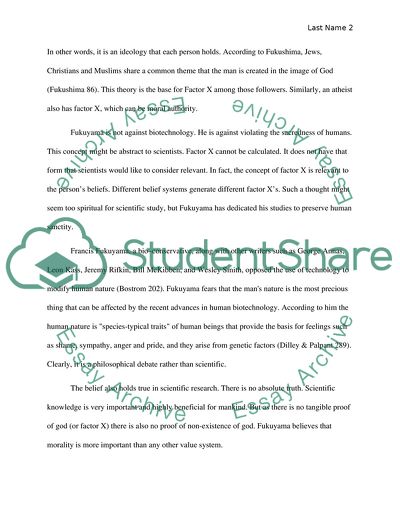Fukuyamas Philosophical System and the Ethics of Biotechnology Essay. Retrieved from https://studentshare.org/philosophy/1657552-philosophy-mini-1
Fukuyamas Philosophical System and the Ethics of Biotechnology Essay. https://studentshare.org/philosophy/1657552-philosophy-mini-1.


